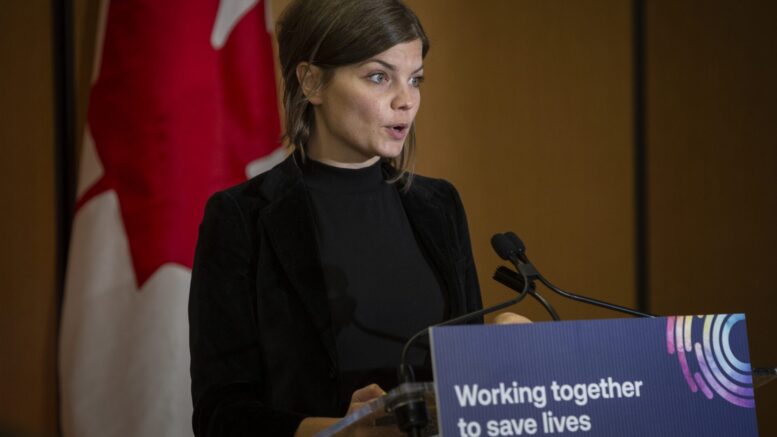Although its funds were used up early this year, Toronto Drug Checking Service is planning an expansion of its service, thanks to a new federal grant.
The body responsible for checking and collecting data on drug use in the city plans to make its program more accessible during the next two years.
The organization is essential for the city’s public health, according to TDCS lead Karen McDonald.
“Sustaining our program, which has become an essential public health service in Toronto and a primary source of real-time information about what’s circulating in the unregulated drug supply for Canada, has been our primary challenge,” McDonald said.
Health Canada announced Oct. 29 the recipients of the Substance Use and Addictions Program (SUAP), providing $21 million in funds to 52 organizations across the country to combat harms related to substance abuse.
“Performing analyses on these data will paint a fuller picture of unregulated drug supply trends across Ontario, enabling comparisons across jurisdictions within the province and nationally,” a government press release said.
TDCS, housed within St. Michael’s Hospital, will receive $2 million over 24 months to extend the program and provide more tools and resources for the work done.
The TDCS program offers drug users essential information about what they consume and the harms related to it. It is free, anonymous, and available to everyone, with samples given at five different locations across the city. It also collects information about Toronto’s illegal drug supply.
The organization started as a pilot program in 2019, and its funding ended on March 31, 2023.
“With this funding, our sustainability challenge is on hold for a moment, though the funding we received is time-limited and not enough to get us where we need to be as a province,” McDonald said.
More cases of substance abuse
Deaths related to drug use have risen in Ontario since the pandemic, Jennifer La Grassa reported in September.
According to Toronto Health, in 2018:
- Seven per cent of adults reported consuming alcohol on a weekly basis.
- Eleven per cent of students from grades 7 to 12 reported using prescription opioids for non-medical reasons.
- Cocaine use is more common among adults who experience housing insecurity.
“Substance use is a health issue and healthcare is a shared responsibility across all levels of government,” a spokesperson from Health Canada told Toronto Observer.


